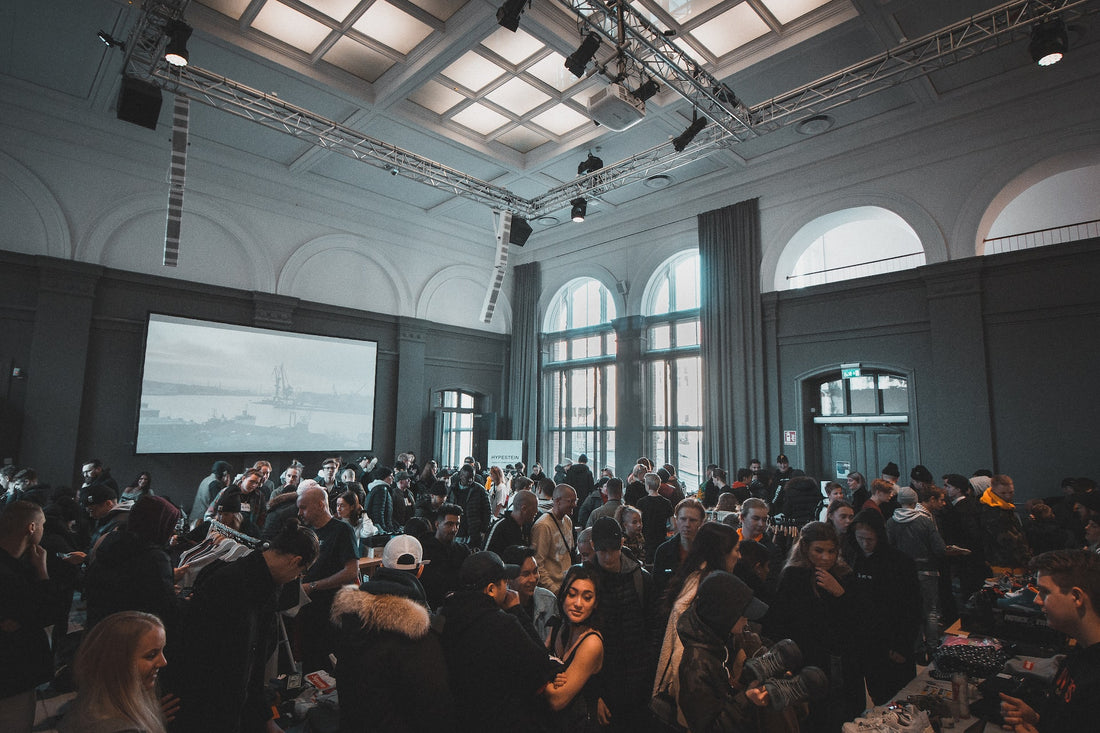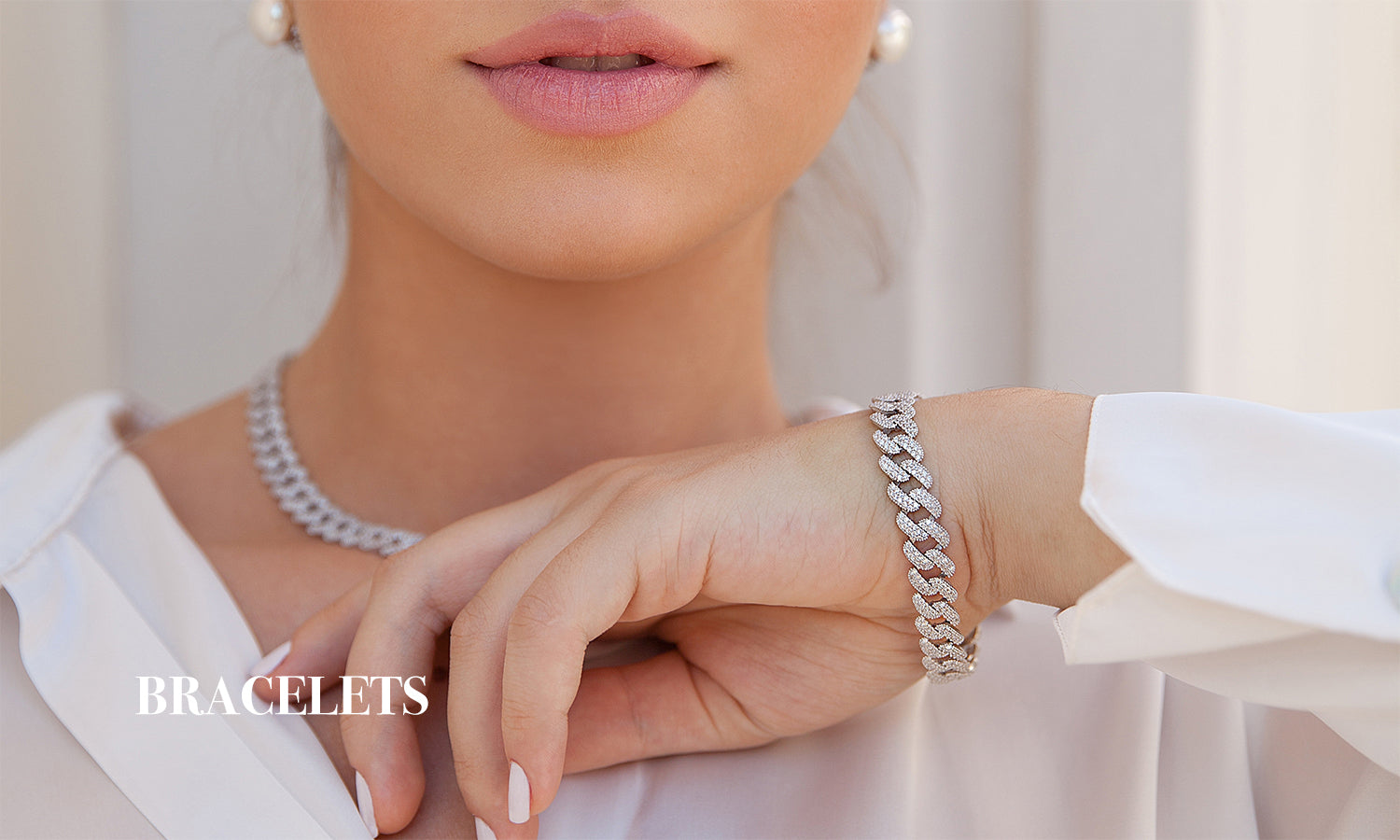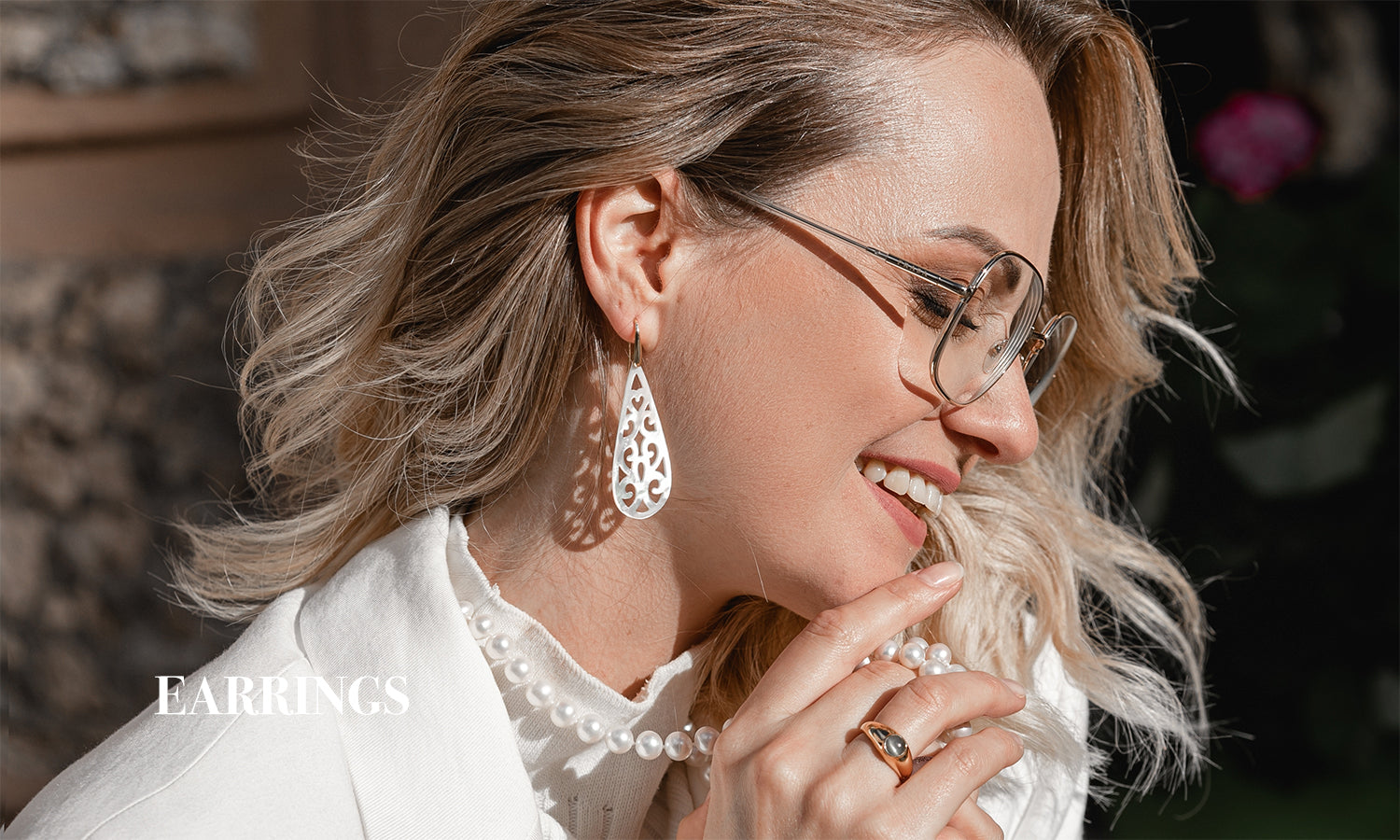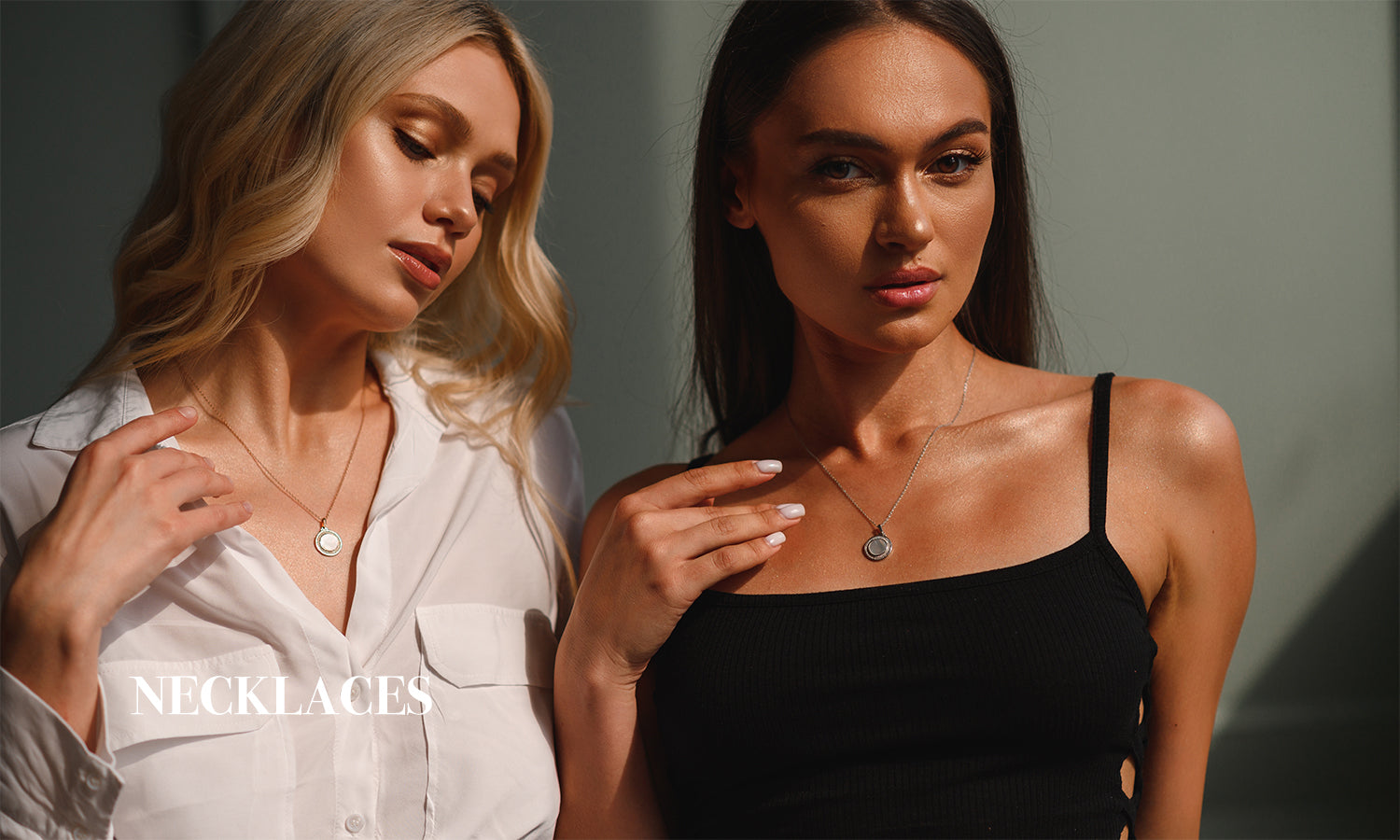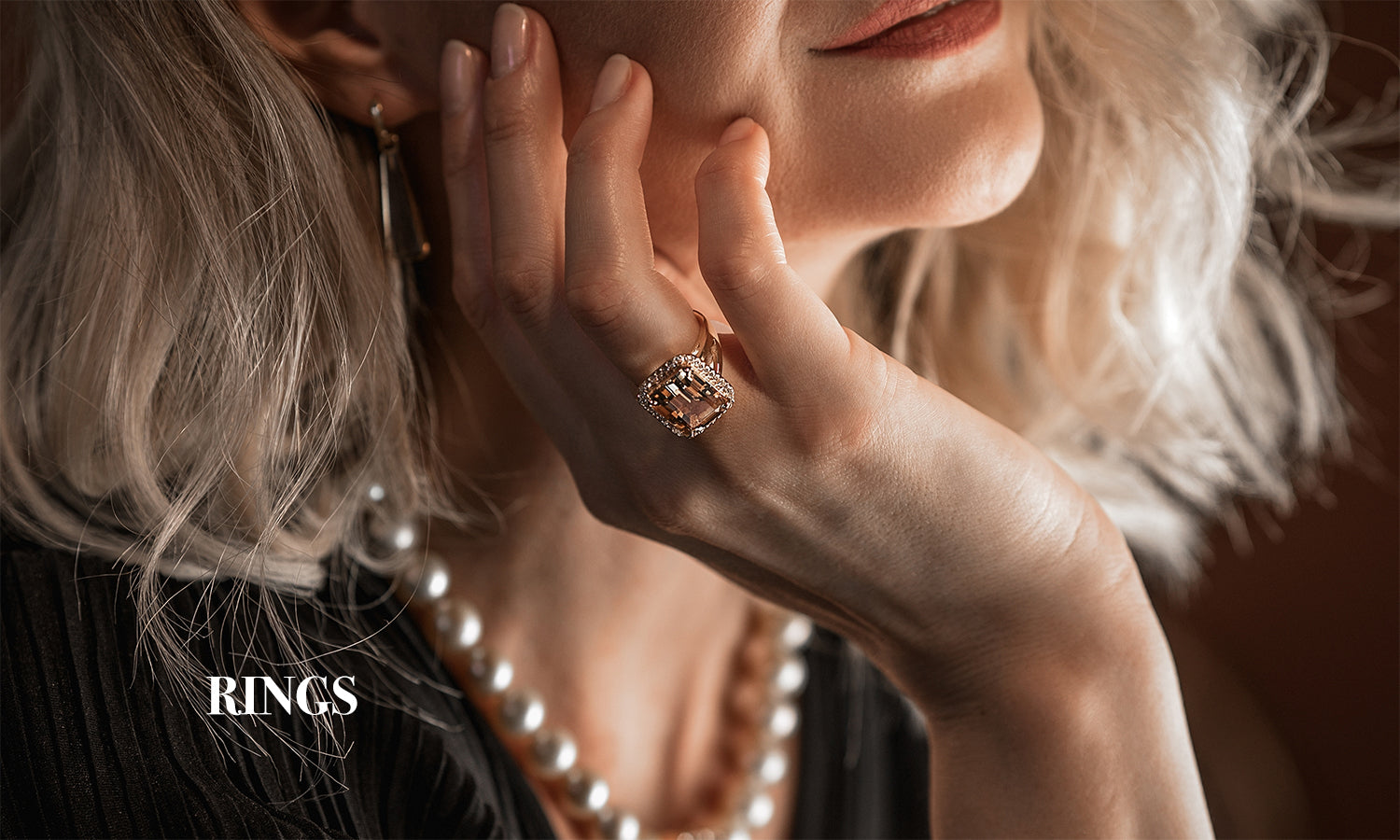There's a lot to think about when you're planning an event. Food, decorations, activities for guests of all ages--the list goes on and on. When it comes to jewellery, you have a few different options. Your best bet is either silver or gold; these two metals can be worn with practically any type of attire, from cocktail attire to business casual wear.
It doesn't end there! This blog post will walk you through the types of jewellery that correlate with particular events and how they differ in price and quality. I'll also give tips on what to look for when shopping and how to decide whether you want something simple or something that shows off your flair.

Etiquette Rules
First, let me give a quick run-through on the basics of etiquette with jewellery. If you're ever unsure of how to dress, some solid rules to go by are:
- Keep it simple. The most important thing is to ensure your jewellery doesn't distract from you or your party; the focus should be on you and the other guests, not your accessories. As a rule of thumb, the simpler, the better.
- Avoid costume jewellery. While this can depend on what type of event you're going to, costume jewellery is usually avoided at black-tie events. Rather than gemstones or flashy colours and designs, this type of jewellery is made from glass or plastic and might include rhinestones. Often it doesn't have any real value.
- Consider the occasion. If you're hosting a simple dinner party for friends, consider wearing something appropriate for a dinner gathering: gold stud earrings and perhaps a necklace with a pendant would be suitable for such an event. When going to a formal event, it's best to wear something more elaborate. A cocktail dress and simple pearl earrings could work just as well as a tiara and necklace with a few fake gemstones.

The Types of Jewelry
Now that we have the basics let's move on to the four types of jewellery: costume jewellery (also known as "fashion jewellery"), gemstones, pearls, and metals. Each type is suitable for different occasions; in this article, we'll go through each type and how you can use them at other events.
Costume Jewelry
Costume jewellery refers to all jewellery that's made from plastic or glass. As I mentioned, it usually has no real value, and it's best to avoid it at more formal events. However, this doesn't mean that all costume jewellery is bad; instead, you should know what you're looking for when choosing it. For example, if you want a necklace with a pendant like the one below, you can get an inexpensive glass pendant from several shops, including https://www.planderful.com/ . While this shouldn't be worn when meeting friends for a quiet dinner, it would work well for casual parties and other events such as weddings or graduations.
Costume jewellery like this necklace can be worn at a variety of events.
A pendant like this one is a great but inexpensive addition to many different outfits.
Gemstones
Gemstones are usually worn for more formal occasions, but that doesn't mean that you can't wear a gemstone if it's appropriate for your event; if you're wearing an elegant black cocktail dress, for example, then pearls are a fantastic option. Some types of gemstones are better suited than others to certain types of events. For example, diamonds will go better than rubies if you're wearing blue or purple at your party. You'll also find that diamonds have a higher value than rubies, so you can expect to pay more.

Pearls
Pearls are another type of jewel that's appropriate for formal events. In this case, you can wear a simple strand of pearls to a black-tie event, but if you want something more impressive--say, an 18-inch pearl necklace--then it might be best to avoid pearls at all expenses. Pearls are expensive, and they're not suitable for every occasion. They're often too fragile to be worn by anyone who knows how to care for them properly.

Pearls like these should be worn on formal occasions.
Metals
This broad category includes all types of jewellery made from materials other than gemstones or pearls. For example, you might have a watch made from stainless steel, gold or platinum; this would be considered metal jewellery. Another example would be decorative pins made from metal, such as the horse pin above. In general, metals come in different types (gold and silver are just two examples), and these different types can influence the price of earrings, necklaces, bracelets and rings.
In general, metals are appropriate to wear at various events; but one thing to remember: make sure the metal is a right fit for your style. If you're hosting an elegant party, it's best to avoid decorative earrings made from gold-coloured plastic. This doesn't mean it won't work, but it's essential to keep in mind that a lot of different jewellery types can be worn at a variety of various events. In other words, don't get stuck in the rut of thinking that gold jewellery should only be worn to black tie affairs.
The price should also affect your choice of metal jewellery if you're on a tighter budget. For example, if you're hosting an event and want to wear a pair of pearl earrings, it's better to choose silver than gold ones. While gold is more common, silver will still work well with your outfit and won't break the bank.
If you want to treat yourself to something new for your next special occasion, keep these helpful tips in mind. Shopping for jewellery doesn't have to be hard once you know what you're looking for and where to look; make sure it's an appropriate item for your event. Also, stick with colours that complement your style, whether vintage or modern, because the wrong shades of metal or gemstones can stand out when the party is over. With a bit of practice and patience, you'll soon be able to create the perfect look for any event without breaking the bank.
Check out our other articles on finding the perfect jewellery at a great price here on planderful!

